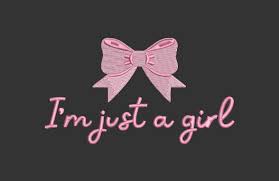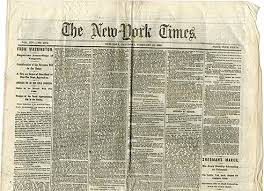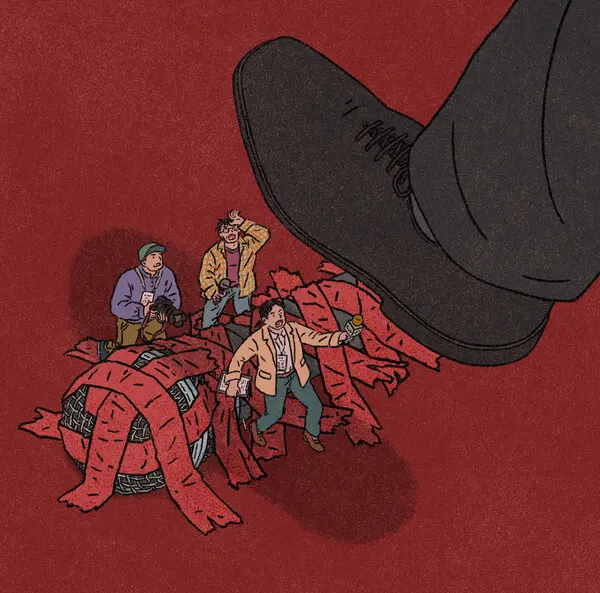
Like him or not, Charlie Kirk was one of America’s most recognizable voices for controversial politics. As younger generations are quick to judge, believe everything they hear, scared of public disagreement and cancel culture, Charlie Kirk stands on the opposite side of this—he’s strong and unwavering in his faith, his voice loud, confident, provoking, and unapologetic in his debates. But how did he get to where his position stood? How did an eighteen-year-old College dropout become one of the most controversial public figures in modern America? This is the Legacy of Charlie Kirk.
The Beginning Fueled by Belief
On October 14th, of 1993, in Arlington Heights, Illinois, USA Charlie Kirk was brought into this world by his middle-class parents— who, even with how highly recognizable Charlie was, remained more private—Robert W. Kirk (An architect, who owned and operated his own design firm) and his wife Kathryn (initially worked in finance, then transferred to become a licensed mental-health counselor). Despite the reputation Charlie Kirk has built for himself, he was raised in a relatively politically moderate household.
Growing up in the suburbs with his family of four (parents, himself, and his younger sister, Mary), Charlie Kirk attended an Illinois Community College for a short time before dropping out to pursue his political activism.
At just eighteen years old, Charlie Kirk co-founded TPUSA, a student organization established on College Campuses to debate students about controversial topics.
TPUSA and Its Goals
TPUSA—abbreviation for Turning Point U.S., the non-profit organization founded by Charlie Kirk and Rob McCoy, the Senior Pastor of Godspeak Calvary Chapel of Thousand Oaks for roughly 17 years.
Their mission? “To identify, educate, train, and organize students to promote the principles of freedom, free markets, and limited government” under the influence of the Word of God, specifically on College Campuses, as the younger generations are the future of our nation, what is a better standing ground other than one built on God, His love, and wisdom?
“If you believe in something, you need to have the courage to fight for those ideas–not run away from them or try and silence them.” Charlie Kirk once said, further showing his beliefs and bravery in speaking out about his faith.
Just or Unjust Hate?
Highly respected by many, and hated by more. Was the amount of hate Kirk faced justified or deserved for no valid point? First, let’s address the reasoning behind the hostility towards Kirk. From hypocrite to homophobic, to racist, and other slurs and names, Charlie has heard it all, but why is this? These labels, meant for criminals or those who’ve actually earned the titles, were thrown at a seemingly hated man who’d done nothing but express his opinion and mindset. Can we address how insane this sounds?
The Abortion Controversy
One of the most controversial debates involved Charlie’s answer to a question by a College Student. Before we continue, here’s a truth about the current World. People are quick to judge and believe what they hear, without diving deeper into the actual story, which causes miscommunication, rumors to be spread, and wrong information to be passed along for the world to use out of context.
Basically, in a debate between Kirk and a room of College students, a young woman by the name of Maren asked the following question: “If you had a ten-year-old daughter and she got raped, and she was going to give birth, would you allow the procedure to happen?” To which Charlie responded, “Yes, the baby would be delivered.” Now, yes, the scenario is horrible—even unimaginable, but it’s true. These situations do occur in real life, and the weight of such decisions brings the case of the pro-life debate to the forefront of morality and law.
Kirk’s answer — firm, unwavering, sure — reflects his opposing abortion stance rooted in Christian beliefs, which supports the viewpoint of life from conception. To understand this mindset in today’s world, we must first examine the facts.
Looking at this from a scientific angle, rather than a religious one, life begins at fertilization — this is when a unique human DNA sequence is formed, “forming a genetically unique individual”.
Kirk and others argue that this marks the beginning of a life, meaning they deserve human rights.
In the case of the abortion process, if a pregnancy is terminated early — within the first 10 weeks — it is usually done via medication, causing the pregnancy to bleed out through the vagina throughout the following days after consuming the pills.
Later-term abortions, particularly those beyond 20 weeks, involve surgical procedures that are more complex and often emotionally and physically distressing. For people like Kirk, the moral question becomes not just about a female’s trauma — which is unquestionably tragic, especially for a child — but about whether that trauma justifies ending what they consider an innocent human life.
It’s not that Charlie Kirk ignores the devastation of rape or the pain of the victim, which in an debate, he said himself, “if i was alive then, I’d have killed them with my own hands” (answering a question by a college student, on the matter of child predators decades ago, as it was normalized during the time period) it’s that his moral framework sees the unborn child not as an extension, or a mistake of the tragedy, but as a separate being with human rights and values. To many, that stance is offensive or insensitive, but to Kirk, it is the truth.
In his mind, sexual assault — even over something as emotional as this, hitting too close to home since the girl in question is his own flesh and blood — doesn’t justify the “murder” of an unborn child. It’s not hate speech to defend rapists or child molesters (whom he all despise); it’s a moral conviction. Whether one agrees or not, dismissing such views as evil without understanding the reasoning behind them is intellectually foolish. The controversy tells its stories not in hate, but in the refusal to continue evil with evil. (rape is evil, so is murder.)
Should Disagreement Ever Lead to Murder?
Ultimately, you never have to see the world the same as another person. Charlie Kirk never tried to force anyone to follow his beliefs; instead, he aimed to convince them. He never approached anyone; instead, they all came to him for a debate to argue their side of the point. You can hate someone for having a different opinion than you, but if society all resorted to murder over simple discussions that don’t result in their favor, wouldn’t the world collapse?
Imagine killing someone over the wrong ice cream flavor. Or finding out your friend was murdered because he supported the wrong baseball team. If disagreement alone becomes a death sentence, free speech collapses.
Picture a similar story; at an LGBTQ Parade in which a homophobic person shoots one of the people attending, simply because they did not agree with the individual, or share their view on life and romantic interests. Morally speaking, isn’t that the same as what happened with Charlie Kirk? Disagreement leading to the assassination of a hate crime? Is that Justified Murder?
People often mock his death, forgetting he’s not just someone the world’s made to hate, he’s a father
a son, a husband, a brother, a friend, a person, with human rights, Freedom of Speech, his own will, God given and constitutional rights to express his opinions. But there’s only one thing I want people to take away from this article: Do you think disagreement should ever lead to murder being justified?










